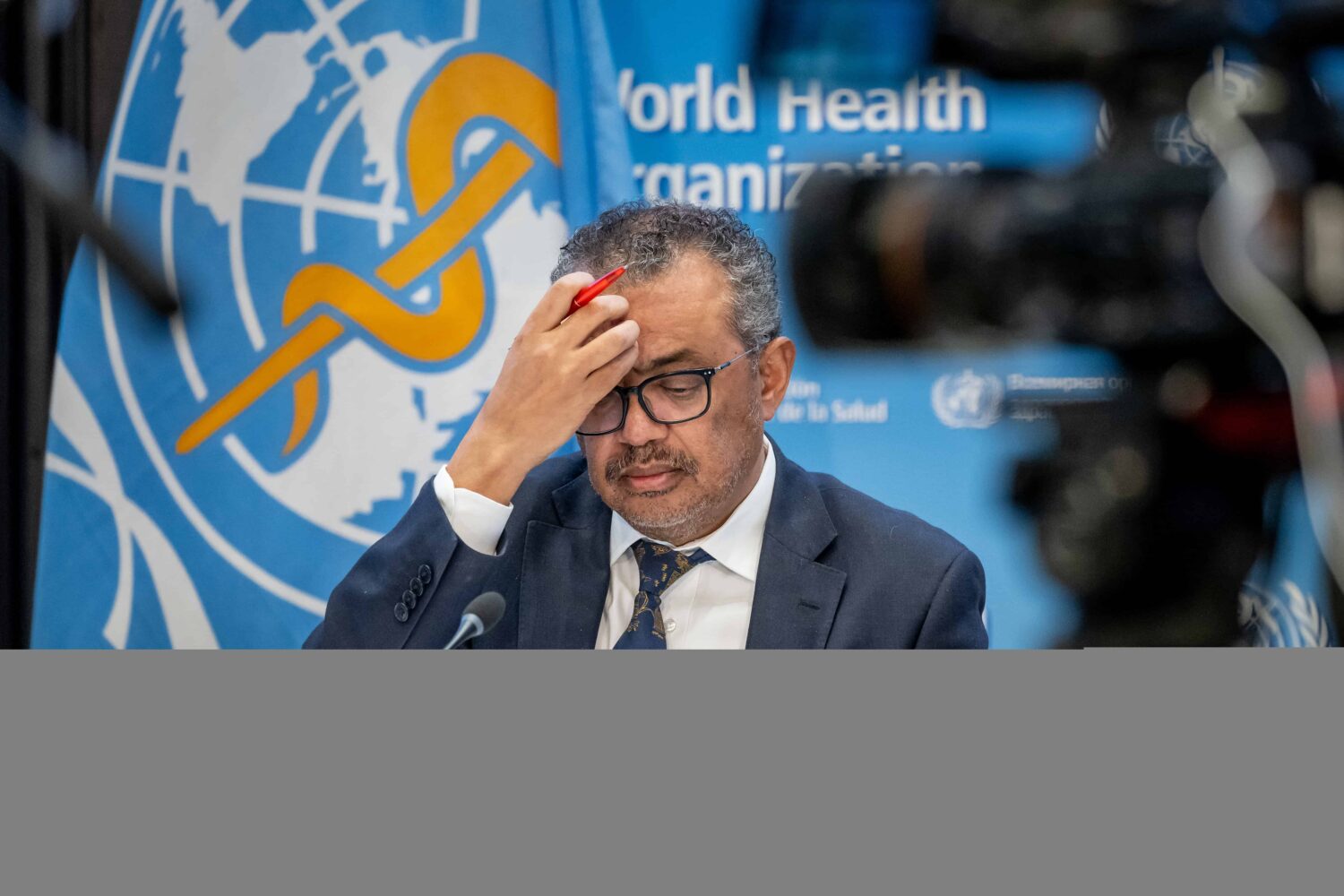Geneva, Switzerland–The World Health Organization said Wednesday it hoped that Covid-19 would no longer be a public health emergency in 2023, as it urged China to share information that could pinpoint how the pandemic started.
As the third anniversary of the original outbreak rolls around, the WHO said the virus was here to stay but would need managing alongside other respiratory illnesses.
WHO chief Tedros Adhanom Ghebreyesus said the weekly Covid death toll was now around a fifth of what it was a year ago — but was still far too high.
Also read: Covid pandemic end in sight, seize this opportunity: WHO
“Last week, less than 10,000 people lost their lives. That’s still 10,000 too many and there is still a lot that all countries can do to save lives,” he told a press conference.
“But we have come a long way. We are hopeful that at some point next year, we will be able to say that Covid-19 is no longer a global health emergency.”
The WHO’s emergency committee on Covid-19, which advises Tedros on whether the virus constitutes a public health emergency of international concern (PHEIC), will discuss the criteria for declaring an end to the emergency phase when they next meet in January.
Maria Van Kerkhove, the WHO’s Covid-19 technical lead, said the committee would look at the epidemiology, variants like Omicron, and the impact of the virus.
While waves of infection are still expected, the pandemic “is not what it was in the beginning”, with cases resulting in fewer hospitalisations and deaths, she said.
Also read: WHO members agree to overhaul health body’s funding
“These deaths are largely happening among people who are not vaccinated,” or have not received their full course of jabs, Van Kerkhove said.
While the WHO says more than 13 billion vaccine doses have been administered, around 30 percent of the world has not received a single dose, she added.
Covid origins
Nearly 650 million confirmed Covid cases and more than 6.6 million deaths have been reported to the WHO, though the UN health agency acknowledges this will be a vast undercount.
Tedros said that as the world looks to end the Covid emergency, which has upended economies and left millions suffering ongoing symptoms, it needs to understand how the pandemic began.
The first cases of Covid-19 were recorded in the Chinese city of Wuhan in December 2019.
“We continue to call on China to share the data and conduct the studies that we have requested, to better understand the origins of this virus,” Tedros said.
“All hypotheses remain on the table,” he said, adding that this includes the theory that the virus escaped from Wuhan’s virology laboratories.
Also read: WHO backs Qatar to manage Covid risks well at World Cup
WHO emergencies chief Michael Ryan said the organisation could not simply stop engaging with Beijing “because you’re not cooperating with us on the origins”, as a huge chunk of the world’s population live in China.
New vaccines hope
Tedros said the virus had been around so long, it was almost part of the family.
“This virus will not go away. It’s here to stay and all countries will need to learn to manage it alongside other respiratory illnesses,” he said.
The WHO’s vaccines chief Kate O’Brien said that the current crop of Covid jabs do not prevent people from catching the virus to the level that had been hoped for.
“We would love to have vaccines that are more effective against infection and transmission and have greater duration of protection,” O’Brien said, calling for more ongoing investment in research and development.








